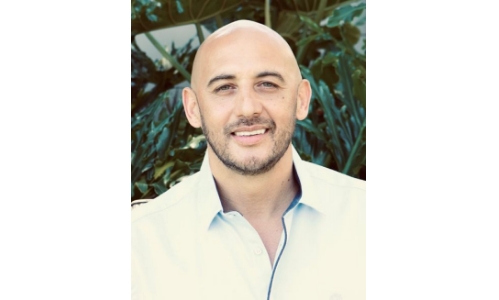According to Haydn Townsend, Managing Director for Accenture Interactive in Africa, alongside emphasis on hygiene and handwashing, people are seeking fitness classes online and returning to the weekly ‘big shop’ for the first time in years. People’s expectations of businesses and brands are rising – working out the implications will be critical to businesses’ survival.
There is an opportunity to reinvent. Less clear is how people’s behaviour and underlying values will change for the long term. Covid-19 has so far changed the experience of being a customer, an employee and a citizen.
People are turning to brands that provide security, and that they can trust in a time of uncertainty. While some have gone online for the first time, others who typically favour digital have been forced to visit stores when delivery slots were scarce.
These shifts are evidence that people’s behaviours were already changing. Businesses therefore need to understand the possible scenarios that could emerge and find ways of growing despite the shifts in consumer behaviour. Becoming a business of experience is imperative.
A business/brand mindshift
A great experience is defined not by what you offer but by how well you enable your customers to achieve the outcomes most important to them. Business of experience (BX) is a more holistic approach that allows organisations to become customer-obsessed and reignite growth. Whereas customer experience (CX) was limited to the chief marketing officer’s (CMO) or chief operating officer’s (COO) purview, BX is in the boardroom as a CEO priority because it ties back to every aspect of a company’s operations.
Our latest Accenture research highlights that 56% of COOs, 53% of chief strategy officers (CSOs) and 51% of chief financial officers (CFOs) said their company will fundamentally change the way it engages and interacts with its customers.
Empathise
It has always been best practice to gain a deep understanding of customer needs to inform your strategy, but Covid-19 has made it a critical step. Brands that empathise – listen, learn and evolve with empathy – will emerge stronger. Continually seek to understand and empathise with people, putting them at the heart of how you design – and constantly evolve – your experiences.
Adapt
Furthermore, the acute acceleration of a ten-year digital trend means the only constant factor will be the need to continually change. We strongly recommend you adapt, by fast-tracking transformation programmes, which means bringing experiences and interactions online and rapidly creating new ways to reach your customers. At the same time, you must face the reality that your existing planning cycles, teams and structures are not built for adaptability – or the scale of work they now face – and consider what changes you need to make.
Reinvent
Reinventing and renewing focus on the customer experience helps to shape the right, collaborative and agile organisation model for the future. Use your purpose and customer understanding as a jumping-off point to innovate the new businesses and experiences that can outmanoeuvre uncertainty. Make sure your teams have the right skills and are working on the right initiatives for the ‘never normal’.
Practical steps for becoming a BX leader
Becoming customer-obsessed is crucial. Relevant data exists with sales teams, customer care operations and finance functions, and conducting new research directly with customers through remote methods can reveal their current needs and expectations. When coupled with a deeply embedded purpose, brands can anticipate which customer needs they should solve and which unmet needs they can fulfil.
Secondly, a true experience innovation culture asks you to close the gap between your brand promise and the experiences you deliver by changing not just what you say, but how you behave across your organisation. Experience innovation occurs at all levels of your business. Businesses should move from relying on a new look and feel to existing touchpoints to drive improvements, to changing processes or operations to better align with customer needs and helping customers achieve their desired outcomes.
Thirdly, most businesses still organise functions independently across business units – each has separate leadership, channel touchpoints, budgets, data pools and more. At best, this siloed approach is inefficient and financially wasteful. At worst, it causes missed opportunities for connecting with customers and driving growth.
This is a legacy of predigital 20th-century business thinking. The reality of operating in a digital and data-rich world is catching up with organisations. Businesses can tackle this by making the experience a priority across every function, including operations, HR, product development, strategy, technology and more.
Lastly, successful companies are taking achievable steps to boldly reimagine their business and operating models by focusing intensely on experience. This requires an operating model evolution in order to align technology, data and talent into one system that is driven by customer experience and focused on a single unified journey. With siloed organisations and breakdowns between departments, the sum of tech improvements is often a painful and inconsistent experience for the customer. Taking a holistic view and finding areas of synergy and connectivity will help you maximise all returns.
Uncertainty persists about what the world, our lives and the economy will look like for the foreseeable future. We need to consider how to create experiences that can navigate tensions and predict which way people will go.
Asking important questions like: will we be prone to self-gratification, or continue interacting with and caring for our local communities? Will we continue supporting our local shops, or will we return to casually buying globally sourced products? How will we view brands and organisations that put ethics before profit? The uncertainty is not just economic: behaviour change among the people you serve is immediate and apparent and will likely cause a permanent shift in the way you do business for years to come.
ACCENTURE SOUTH AFRICA
accenture.com/za-en











